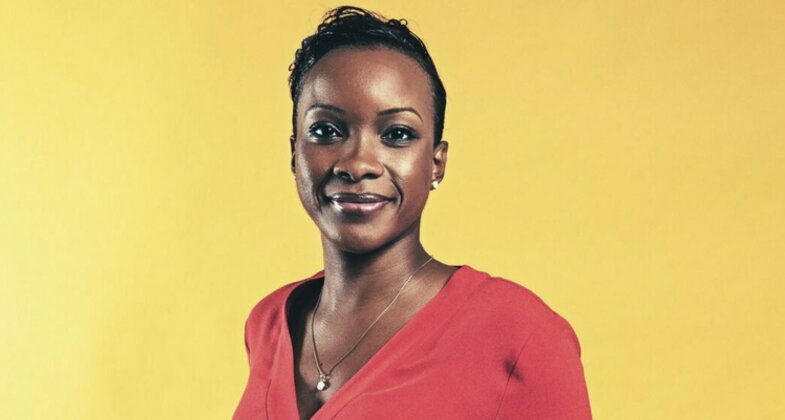Racial equality in hospitality, travel & leisure – Encouraging conversation and heightening business performance
In June, we were delighted to speak with Tea Colaianni about the effect of the pandemic on Gender Equality in the sector. This month Kathryn Gill, Consultant in our Hospitality & Leisure Practice speaks with Patrice Gordon-Mantey to explore Racial Equality; the effects of the pandemic, good and bad, to the need for change and commercial advantages.
Patrice trained with PwC to become a Chartered Accountant and then progressed into industry. She has held senior finance roles within British Airways, Royal Mail and latterly, Virgin Atlantic, where she is currently Head of Joint Ventures and Commercial Planning and has spearheaded several inclusion initiatives.
As 2020 has progressed, many businesses in the sector have found themselves navigating extraordinary commercial challenges, desperately balancing short-term working capital issues with long-term strategic thinking. In this type of economic environment, how do we make D&I a priority?
Business and society have had the opportunity to slow down and reflect on what really matters in the world. What has become clear is that companies and brands who have shown true human connection are the ones that have succeeded in being viewed more favourably.
The business case for diversity is clear. According to McKinsey, companies who are more gender diverse financially outperform those who are not by 21%, and what’s even more staggering is that companies who are more ethnically diverse outperform by 33%. Therefore, aside from being ethically and morally correct, there is a genuine negative financial impact in disregarding the importance of diversity; companies who score particularly poorly on the diversity scale typically underperform by 29%.
The Chartered Management Institute (CMI) and the British Academy of Management (BAM) report Delivering Diversity found that 75% of FTSE 100 companies set progression targets for gender but only 21% do the same for BAME. How do you think businesses can do more without it simply becoming a lip-service exercise?
In the same way that we have financial targets and operational targets in business, we need targets for Gender and Race/Ethnicity because without them we will never move forward. However, it is not as simple as ‘setting a target’; there must be a real commitment to achieving these targets. Should they not be achieved, difficult questions must be asked, and businesses must hold themselves to account – just as they would when they fail to meet a financial target.
Targets without action and commitment are simply paying lip service to the problem when what is needed is measurable action.
What would your recommendation be to Senior Leaders on addressing the issue of diversity in the Workplace?
Some businesses find this to be an easier topic to tackle than others. For many – and certainly, for those at the very beginning of their D&I journey- it is the uncomfortable elephant in the room.
It goes without saying that a D&I policy and investment in unconscious bias training must be the absolute bare minimum starting point. Positive change only really starts to happen when we delve much deeper and into those more uncomfortable conversations; such as ‘is our business truly an inclusive and comfortable place to work for all?’.
I believe that leaders must start by being very honest with themselves and their team about where the business is; how comfortable are they with D&I? How informed are they? How successful have they been with an effective D&I strategy?
Throughout the past few months, I have witnessed many businesses claiming inclusivity, only for this to be disputed by under-represented groups of people within their workforce. Yes, this is damaging and hugely frustrating but, rather than vilify and shame such businesses, we must grant them the opportunity to acknowledge their shortcomings and recommit whole-heartedly to creating an action led D&I strategy. This sort of forward-looking and ‘greater-good’ mentality is the only way to be truly progressive.
Real cultural change takes time and whilst there are no quick fixes, do you have any advice on objective measures Businesses and Leaders could take to improve the disparities that exist in the workplace?
We live in a world where we have successfully pushed the gender pay gap conversation to the top of the agenda – we speak openly about this very real issue and we need to emulate this commitment to change regarding the issue of the race pay gap.
Black employees in Britain on average earned 5.8% less than their White British counterparts in 2012. And the stark reality is that in the six years to 2018, we regressed rather than progressed, to 9.2% less. (ONS, 2018).
And whilst I appreciate that there are administrative challenges around reporting on racial pay disparities, I would urge businesses who are seeking to be progressive in their D&I strategy to proactively invest in being able to understand, report, and correct pay inequalities before it becomes mandatory.
For racial equality to exist in the workplace, all races and ethnicities must understand and support it. However, it is often those that are not part of a minority group that need the most advice on making a positive impact. What would your advice be to that community?
Many businesses are avoiding imminent recruitment drives due to COVID-19, and this presents a real opportunity to effect lasting change within D&I. Businesses cannot ‘remedy’ their racial diversity through quick-fire hiring, but instead, must engage with every ‘pocket’ of their employee community, give people a voice, genuinely listen and ultimately, galvanize all communities within their workforce.
Listen first – If you have colleagues or friends who are of a differing race, culture, or background to yourself and are open to speaking about their unique experiences, but you’ve spent little time listening to them or asking questions, please do.
Educate yourself – Whilst those from ethnic minorities can play a role in education if they choose to, it is not their responsibility. It is incumbent on us all to educate ourselves on this topic, just like any other and there are so many insightful, interesting and thought-provoking resources available. Education on this topic can come through reading, through watching and through listening. I recommend visiting AKQA’s website for some reading on the topic – AKQA is a leading ideas and innovation consultancy.
Do not be a silent witness – Most people will be comfortable speaking out against overt racism, but the reality is that unconscious bias is not overt racism; it presents itself through micro-aggressions that are often glossed over, both in the workplace or personally. Everyone is responsible for building a better world. Once you have educated yourself, don’t waste your knowledge by being a silent witness. Once we know better, the onus is on us to do better.
For more information please contact Kathryn Gill. Kathryn is a Consultant within the Retail and Leisure Practice.



